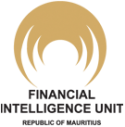FAQs
Money laundering is the process intended to disguise the illegal origin of proceeds of crime in order to make them appear legitimate. If undertaken successfully, it allows criminals to maintain control over proceeds of criminal activities and, ultimately, provide a legitimate cover for these activities. The process is often carried out in three stages:
- Placement
- Layering
- Integration
Terrorist Financing is the process by which funds are provided to an individual or group to fund terrorist activities. Unlike money laundering, funds can come from both legitimate sources as well as from criminal activity for the financing of terrorism. Funds may also originate from personal donations, profits from businesses and charitable organizations but all the funds are actually used to finance terrorism. Funds may come, as well as from criminal sources, such as the drug trade, the smuggling of weapons and other goods, fraud, kidnapping and extortion.
Unlike money laundering, which precedes criminal activity, with financing of terrorism, it is possible to have fundraising or a criminal activity generating funds prior to the terrorist activity actually taking place. However, similar to money launderers, those financing terrorisms also move funds to conceal their source of those funds. The motive is to prevent leaving a trail of incriminating evidence.
Proliferation of weapons of mass destruction (“WMDs”) can be in many forms, but ultimately involves the transfer or export of technology, goods, software, services or expertise that can be used in programmes involving nuclear, biological or chemical weapons, and their delivery systems (such as long-range missiles). Proliferation of WMD financing is an important element and, as with international criminal networks, proliferation support networks may use the international financial system to carry out transactions and business deals. Unscrupulous persons may also take advantage of the potential profits to be made by facilitating the movements of sensitive materials, goods, technology and expertise, providing seemingly legitimate front organizations or acting as representatives or middlemen.
A Financial Intelligence Unit (FIU) is a national agency responsible for the receipt, analysis and dissemination of financial intelligence submitted through Suspicious Transaction Reports and information relevant to money laundering and terrorist financing. The FIU provides leads to law enforcement authorities, which are in some way suspicious, and might indicate money laundering or terrorist financing.
In addition to its core function, an FIU may be mandated to carry out additional functions such as supervision of reporting entities to enforce compliance to AML/CFT legislations.
AML/CFT counter measures range from legislation to awareness creation. AML/CFT legislation, for example, criminalises money laundering, defines the offence and penalties and spells out the institutional or other measures put in place to combat financial crimes. AML/CFT supervision relates to compliance with guidelines issued by regulators and other requirements such as ‘know-your-client’ and maintenance of records. The setting up of the FIU in itself is a crucial AML/CFT measure alongside effective investigation and prosecution for offences of money laundering and terrorist financing.
Other AML/CFT measures include assets seizure or forfeiture, training, awareness-creation among the wider public and development of a strong reporting culture to the FIU to protect the financial system from abuses. By and large, AML/CFT frameworks tend to reflect the 40 Recommendations of the Financial Action Task Force.
The Egmont Group (EG) is the recognized international organization which provides a forum for FIUs to improve respective national AML programs and cooperation in the fight against money laundering and terrorism financing. The EG also helps in enhancing expertise and capabilities of FIUs’ staffs and fosters better communication among its members.
The Financial Action Task Force (FATF) is the recognized international standard setter in the AML/CFT combat. Its purpose, besides promoting the adoption of its 40 Recommendations, is to evaluate and monitor compliance with its standards. It also carries typologies studies on methods, trends and techniques of money laundering and terrorist financing and responds to new and emerging threats in that area.
Reporting person is a person who has AML/CFT obligations under the Financial Intelligence and Anti Money Laundering Act (FIAMLA) 2002, United Nations (Financial Prohibitions, Travel Ban and Arms Embargo) Sanctions Act 2019 (UN Sanctions Act) and the Financial Intelligence and Anti Money Laundering Regulations 2018 (FIAML Regulations). In Mauritius, Reporting Persons include banks, financial institutions, cash dealers and member of a relevant profession or occupation as per FIAMLA.
A “suspicious transaction” means a transaction which –
- gives rise to a reasonable suspicion that it may involve–
- the laundering of money or the proceeds of any crime; or
- funds linked or related to, or to be used for, the financing of terrorism or proliferation financing or, any other activities or transaction related to terrorism as specified in the Prevention of Terrorism Act or under any other enactment, whether or not the funds represent the proceeds of a crime;
- is made in circumstances of unusual or unjustified complexity;
- appears to have no economic justification or lawful objective;
- is made by or on behalf of a person whose identity has not been established to the satisfaction of the person with whom the transaction is made; or
- gives rise to suspicion for any other reason.
“transaction” includes –
- opening an account, issuing a passbook, renting a safe deposit box, entering into a fiduciary relationship or establishing any other business relationship, whether electronically or otherwise; and
- a proposed transaction or an attempted transaction.
